|
Men are from Mars
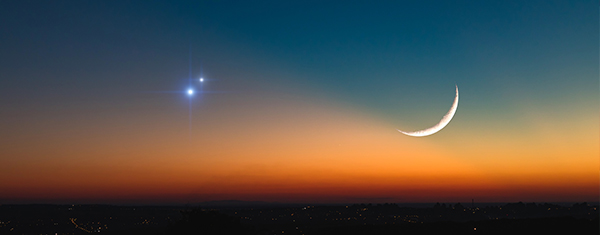
It’s no secret that in relationships, men and women often get their communication wires crossed. The simple explanation, of course, is that men and women hale from different planets. Men Are from Mars, Women Are from Venus: The Classic Guide to Understanding the Opposite Sex by John Gray became “The New York Times #1 best-selling relationship book of all time”, according to his bio on Amazon. Not too shabby for a guy from Mars. I never read the book myself, but it entered the ether through his appearances on the morning news and talk shows, enough so that I learned a few things. For example, women might tell men their problems looking for a confidante. Men might respond by giving solutions to those problems, even though that wasn’t the expectation. Somewhere in my schooling, I was given a writing assignment in which I had to describe how to make a peanut butter and jelly sandwich. “Pretend you’re telling someone who is from Mars,” the teacher instructed so that we didn’t miss any important steps. I took this to heart, but at the same time, I recalled my mother telling a story about how when she and my father were newlyweds, he asked her to make him a peanut butter and jelly sandwich. She spread peanut butter on one side of a slice of bread and placed a layer of jelly on top of that before topping it with another slice of bread. She handed the sandwich to my father. “What’s this?” my father asked, “I wanted a peanut butter sandwich and a jelly sandwich.” Even though it was a long shot, this mixed marriage between a Martian and a Venusian withstood many miscommunications. Men and women may never truly understand each other, and that’s okay. I would, however, like to know what my dog is trying to say so I'm waiting for the sequel, Dogs Are from Pluto.
Stay safe and healthy,

Tracy Jacobs
| |
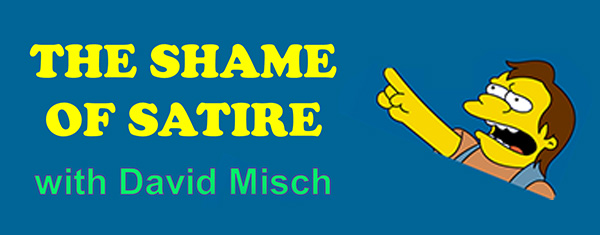
The Shame of Satire with David Misch
Wednesday, February 28 at 1:00 p.m.
Online via Zoom
Free
Comedy has been mocking society’s foibles since the poets of ancient Rome, but right now may be the Golden Age of Satire with “The Daily Show”, Samantha Bee, Bill Maher, John Oliver, Stephen Colbert, and “The Onion” shaming the shameless by taking pungent, potent pokes at the hypocrisies of society. But does shaming have any effect? Even many satirists don’t think so, yet pushback has been harsh, from the “Charlie Hebdo” massacre in Paris to repression of satirists worldwide, from imprisonment of Chinese bloggers to a comedian standing trial in Germany. Satirists are always being accused of being offensive, but generally, they don’t care. George Carlin said, “it’s the duty of a comedian to find out where the line is...then step over it.” One thing is certain: that line is different for everyone. So, how do we decide when satire goes too far? This talk explores how satire challenges society’s taboos by getting people to examine their assumptions. Ultimately, satire is less about changing minds than getting people to think.
David Misch is a former stand-up comedian, writer, and teacher. As a screenwriter, his credits include “Mork and Mindy”, “Saturday Night Live”, “The Muppets Take Manhattan”. He is the author of “Funny: The Book: A Beginner’s Guide to Corruption”. He has taught comedy courses at University of Souther California and musical satire at UCLA. He’s given lectures at Yale, Columbia, the Smithsonian, 92nd St.Y, Oxford University, Trinity College Dublin, University of Sydney, VIEW Cinema (Torino, Italy), San Miguel (Mexico) Writers’ Conferences, Raindance Film Festival (London), Austin Film Festival, American Film Institute, Writers Guild of America, Sony, DreamWorks, Lucasfilm, Disney, Second City, and the Actors Studio.
| |
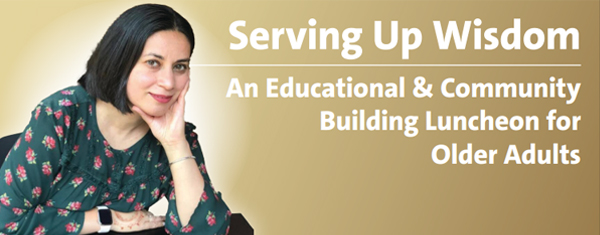
Serving Up Wisdom: An Educational & Community Building Luncheon for Older Adults
Monday, March 4, 10:30 a.m. –1:30 p.m.
Enoch Pratt Free Library—Central Branch
Creative Arts Center, 2nd floor
400 Cathedral Street
Free
Enoch Pratt Free Library, in partnership with the Osher Institute for Lifelong Learning at Towson University, is proud to present our luncheon lecture series, offering patrons an afternoon of engaging conversations and exciting activities.
Saima Sitwat, author, speaker, and educator will address her own experiences and that of others as a Muslim woman in the United States and beyond. Born and raised in Karachi, Pakistan, Sitwat migrated to the United States of America in 2003. She believes in the power of storytelling, and puts her faith in the word, written and spoken, to provide healing and challenging pre-existing paradigms. Sitwat currently works at Loyola University Maryland as the Assistant Director of Ecumenical and Interfaith Ministry.
Following the lecture, participants will have the opportunity to engage in a themed craft and explore curated library materials, followed by a boxed lunch.
This program is recommended for patrons 50+. Please contact Madelyn McCaully at mmccaully@prattlibrary.org or call 410-396-5494 to RSVP
| |
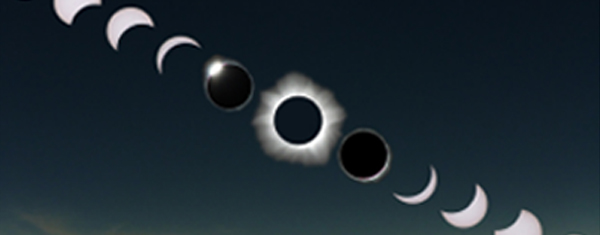
April's North American Eclipse of the Sun
How to see it safely with astronomer Andrew Franknoi
Tuesday, March 5, 2024, 7 p.m.
A rare and dramatic eclipse of the Sun is coming to North America on April 8, 2024. 32 million people living in a narrow path from Western Mexico, through Texas, parts of the Midwest, upstate New York, and a slice of New England will see a magnificent total eclipse, where the Moon completely covers the Sun. Everyone else (an estimated 500 million people) will see a nice partial eclipse, where the Moon covers a good part of the Sun. Andrew Fraknoi’s presentation will describe how eclipses come to be (and why they are total only on Earth), what scientists learn during eclipses, exactly when and where the eclipse of 2024 will be best visible, and how to safely observe an eclipse of the Sun.
Andrew Fraknoi recently retired as the chair of the astronomy department at Foothill College. He continues to teach short, noncredit courses on astronomy at San Francisco State University and the University of San Francisco. He is the co-author of When the Sun Goes Dark, a book for children about eclipses. He is the lead author of OpenStax Astronomy, a free online book that is now the most frequently-used, introductory astronomy textbook in the country. He appears regularly on local and national radio, explaining astronomical developments in everyday language, and was named California Professor of the Year in 2007. With several colleagues, he is leading the effort to distribute six million free eclipse glasses through 13,000 public libraries across the nation, with support from the Gordon & Betty Moore Foundation. LEARN MORE
| |

The Osher Advisory Council would like to add a couple more members. The Advisory Council members serve as a sounding board for Osher staff. Meetings occur every other month with some additional meetings scheduled as necessary. For more information on how to nominate yourself or another Osher member, please find information at the link below.
OSHER ADVISORY COUNCIL NOMINATION FORM
| |
|
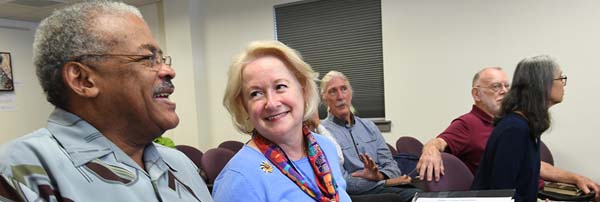
Support Osher at Towson University. Your tax-deductible contribution helps to provide a rich experience for our members and a vibrant, affordable program for years to come.
Donate online through the link below. If you prefer to donate by check, please make check payable to “Towson University Foundation, Inc.” and note Osher fund in the memo line. Mail to: Towson University Foundation, Inc., P.O. Box 17165, Baltimore, MD 21297-0219.
If you would like to honor a friend or loved one with a donation in their memory, please consider supporting Osher at Towson University with a gift to the Osher Excellence Fund.
| |
| | |